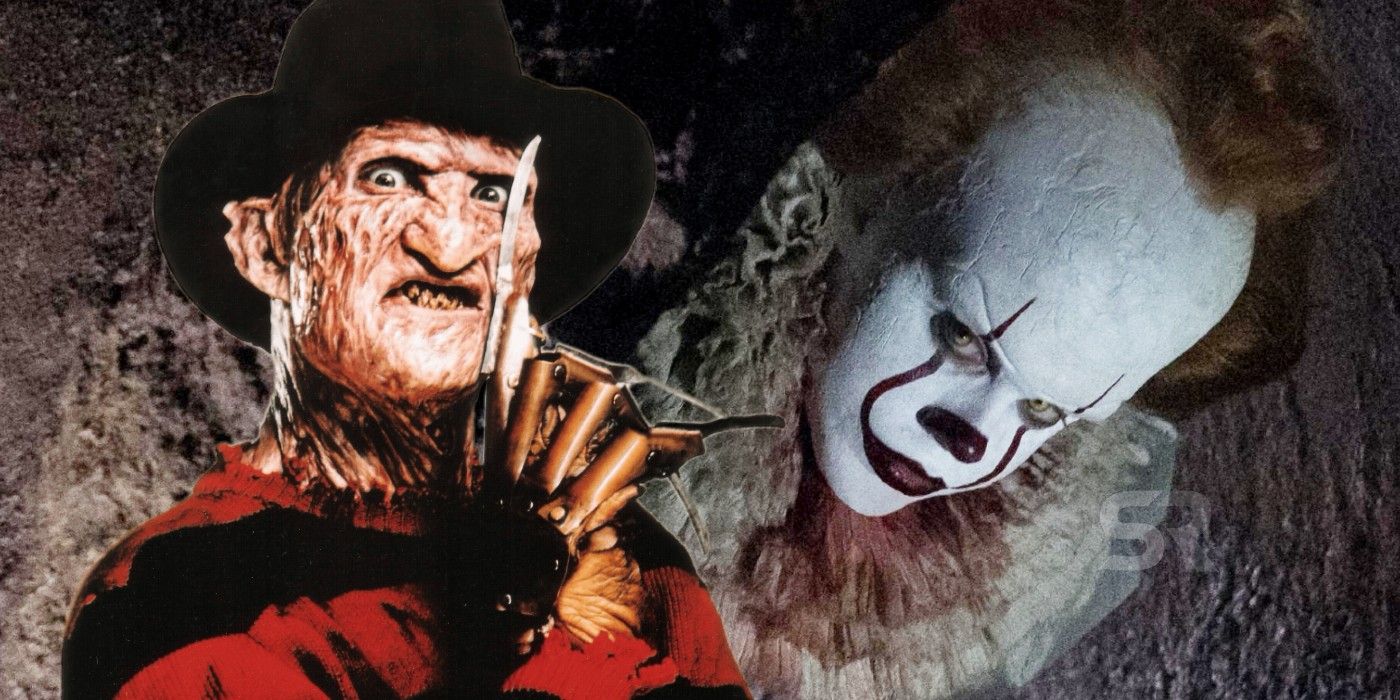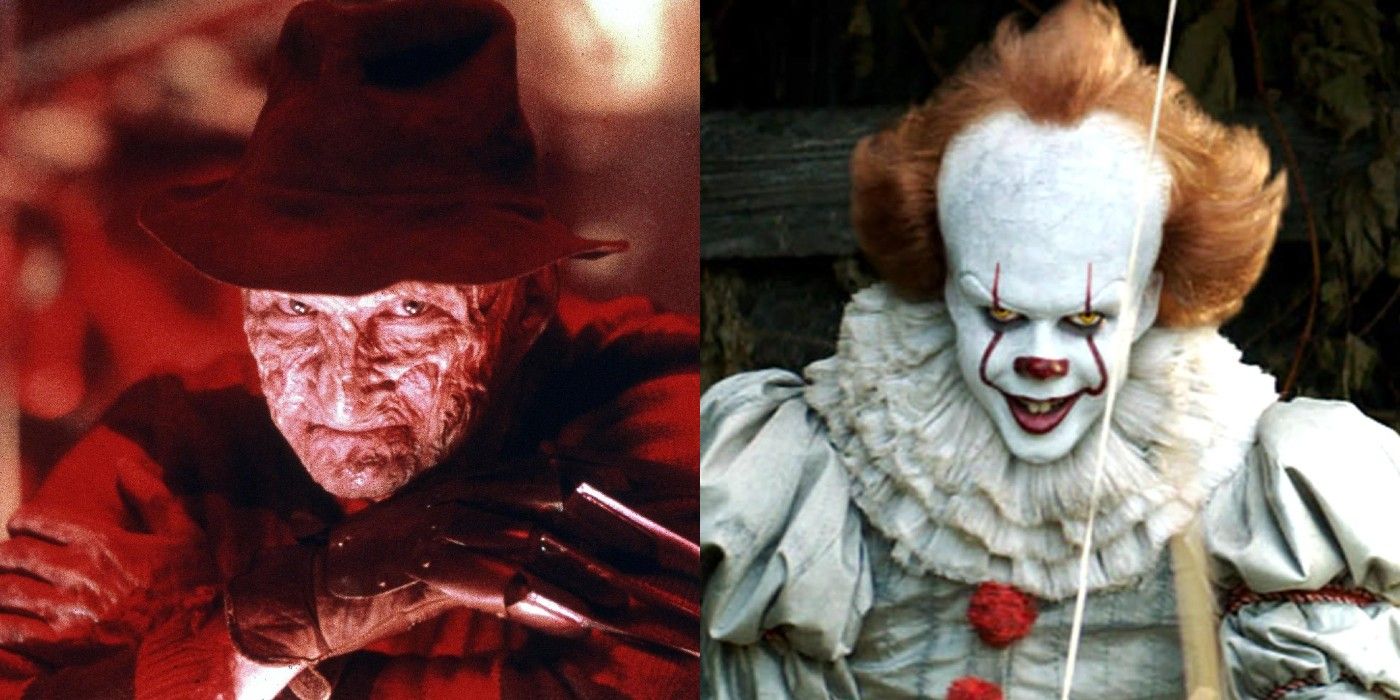
Two of the most popular villains in the horror genre are very similar: IT’s Pennywise and A Nightmare on Elm Street's Freddy Krueger, but is there a reason for that? In 1986, Stephen King introduced readers around the world to a new type of monster in the novel IT. The story follows a group of kids self-named “The Losers Club” who come across with an evil, shape-shifting entity (referred by them as “IT”) whose preferred form is that of Pennywise the Dancing Clown. The novel then jumps 27 years after those events and reunites with the Losers, now adults and living far away from their hometown, who are forced to return to Derry, Maine, to confront IT one final time.
Two years prior to the publishing of IT, Wes Craven terrorized viewers with A Nightmare on Elm Street, which introduced a new slasher called Freddy Krueger (played by Robert Englund), a burnt killer with a bladed leather glove. The film followed four teenagers whose dreams are invaded by Krueger, and the problem is that if he kills them in their dreams, they also die in the real world. A Nightmare on Elm Street was the first entry in what would become a film franchise, with a total of nine films, including a crossover with Friday the 13th in Freddy vs. Jason and a remake with Jackie Earle Haley as Krueger.
Both characters have become part of pop culture, and even though they live in completely different universes, the way they prey on their victims is very similar. Just like IT, Freddy Krueger is a shapeshifter, an ability he uses quite often to mess with his victims and eventually catch them. Both use fear to terrorize their victims and go after them, and along with their ability to take on any form, they usually use those fears and transform into them. Of course, not all people are easy prey, and Krueger and IT need to change their plans sometimes. In order to make a victim vulnerable, they use their personal insecurities and grief – that way, they are easier to catch and kill.

Although they have a lot of similarities, they also have limitations, which completely rules out a possible connection between them aside from fear being the main theme in their stories. Unlike IT, who can use all its abilities in the real world, once Freddy is pulled out of his victims’ dreams, he has the same vulnerabilities as any human and thus can be destroyed, and he doesn’t feed from fear like IT does. Freddy Krueger was also a real person before becoming the nightmare villain he is, whereas IT is not human at all. The similarities between these characters are so strong that director Andy Muschietti considered having Freddy Krueger as one of the many forms IT would adopt in order to terrorize the Losers, but decided not to do it in order to stick to trauma and childhood fears.
However, as many as the similarities between IT/Pennywise and Freddy Krueger are, it's all merely coincidental. Although IT was published after A Nightmare on Elm Street was released, Stephen King began working on it in 1981 and finished the novel in 1985. Wes Craven began writing A Nightmare on Elm Street around 1981, and took inspiration from his childhood as well as several newspaper articles about Southeast Asian refugees who suffered disturbing nightmares, while King’s inspiration came from the concept of “real trolls in imaginary gardens”. Still, it’s interesting to see how these characters address fear in similar yet different ways.
from ScreenRant - Feed https://ift.tt/2WB5WUv

0 Comments